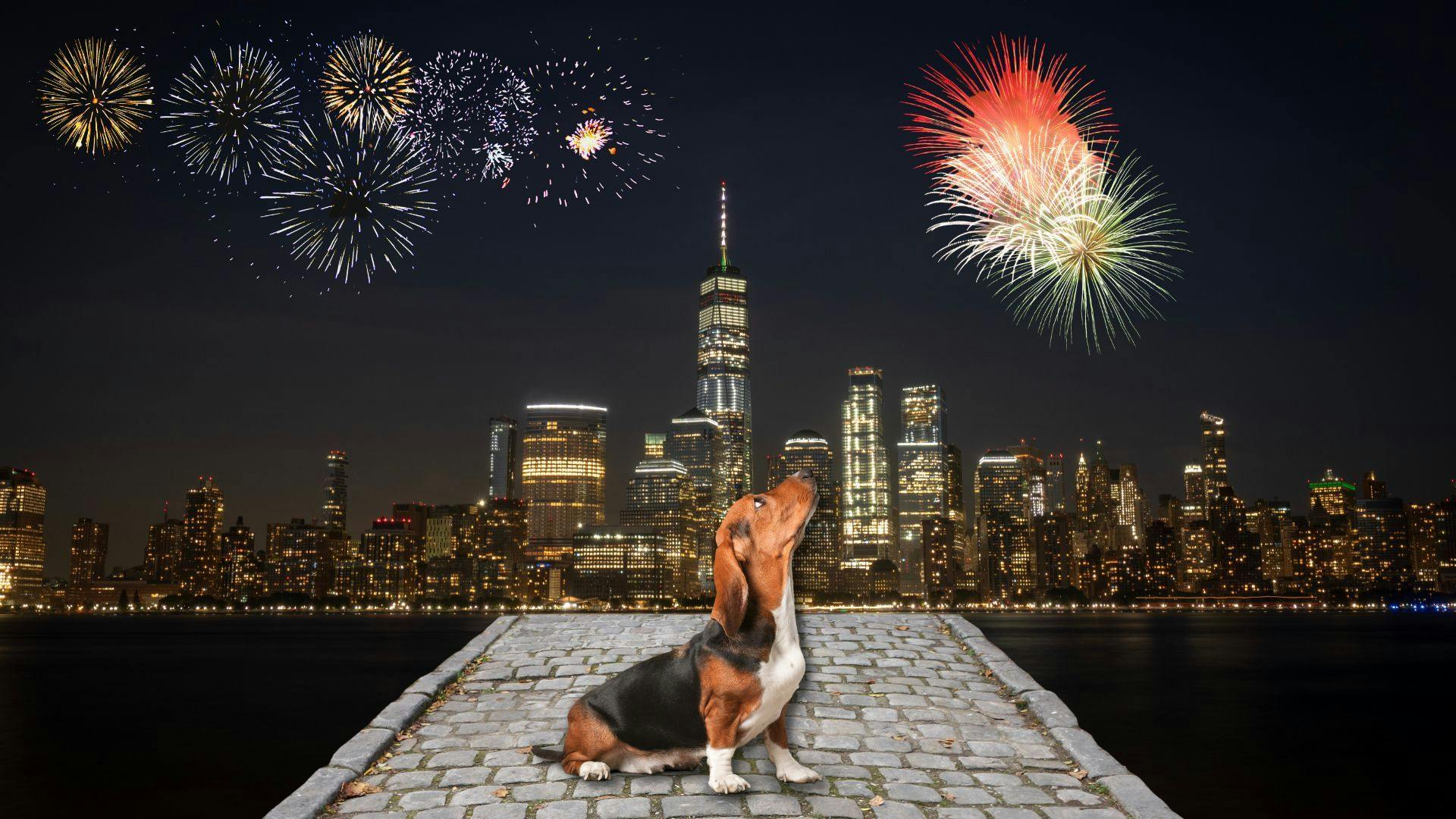
New Year’s Eve. For humans, a night of celebration and new starts.
But for your dog? An unpredictable night of fireworks. Loud bangs and flashes. Not exactly a recipe for a calm, collected dog.
So if you're looking ahead to the festive season and thinking about preparation and strategies to help your dog, we’ve got just the guide for you.
Read on for solutions to keep your dog safe and soothed during New Year’s Eve fireworks – and beyond.
How to desensitise your dog to fireworks
A huge part of keeping your dog calm during fireworks is early preparation and desensitisation. It is a slow process that you should do over weeks, or even months.
We recommend searching for ‘firework sound effects’ online and begin playing them around the house – at a very low volume initially.
If they are not showing any stress responses, you can begin the desensitisation by making them sit and giving them a treat every time a firework sound is played, and they’re calm.
Over the next few days, you can slowly increase the volume, rewarding them each time they keep calm. If they stress, lower the volume again and don’t reward.
Setting up the environment
Escape is a very real possibility if your dog becomes frightened during the fireworks. They should be kept inside for the entire night, but to truly ensure their safety, you should:
- Create a den: Create a cosy, familiar space in a room they use regularly by layering it with blankets, pillows, their favorite toy, and a piece of your clothing. Encourage them to associate it positively with treats, avoiding any forceful actions.
- Secure your house and garden: If there are any parts of your fence that need fixing or potential gaps in your gates, make sure they are closed off early.
- Check that your dog’s ID tags, and microchip are up to date: There may be a greater chance of your dog running away in fear of the fireworks, and you should be prepared in case this happens.
Preparing for fireworks
Firstly, make sure you give your dog plenty of opportunities to exercise on the day of the fireworks. It’ll give them a chance to let out all their nervous energy, keeping them calmer later in the night.
Feed them well before fireworks are due to start and take them out to the bathroom early so you can keep them inside later in the evening. A tired, well-fed dog that doesn’t need to go outside will be in a better position to stay calm in the evening.
It’s also a good idea to have new toys or a new bone to distract them when the fireworks start. You can also invest in calming products and activities to soothe your dog.
Our top picks?
- Thundershirt Anti-Anxiety Shirt – to wrap them up (it feels like a hug!)
- Vetalogica Hemp Clinicals Calming Dog Treats – to calm them down
- Interactive toys – to keep their attention on a new challenge
Keeping calm during fireworks
As for when the fireworks are happening, there's a few ways to keep them relaxed:
- Keep the curtains and windows closed: Bring your dog inside well before fireworks start and keep them in for the evening. Closing curtains and windows will help block noises and flashes.
- Put on white noise: Putting on a load of washing, or playing a 'white noise' playlist on your computer of TV can help drown out the firework sounds.
- Cuddle and comfort them: When patting your dog to soothe them, use long, slow strokes that extend the full length of their body. Speak to them softly, using a calm and even tone. Do not pat them frantically or speak in a loud or high-pitched voice as they will pick up on your nervous energy, making them more anxious in turn.
- Give them space: Alternatively, if your dog is trying to skulk off and hide, let them. Check on them often, but don’t force them to be in an open space as they may feel more comfortable and secure in a hiding spot.
- Consider anti-anxiety medication: If your dog’s phobia is severe, talk to your vet about options for mild sedation. For less severe cases, you can use natural calming remedies. Prevention is better than cure, so give these to your pet well before the fireworks start.
Preparing for the festive season? Read up on Petstock's expert canine advice for tips, tools and recipes to help your dog feel safe and secure this summer - and beyond.